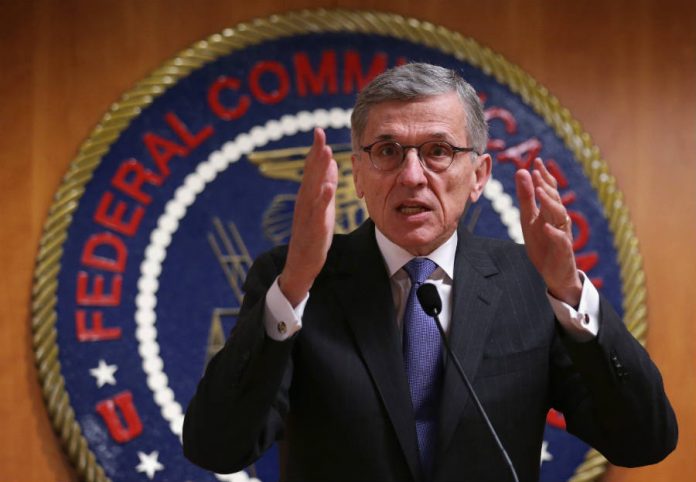
Federal Communications Commission Chairman Tom Wheeler wants carrier companies to provide their customers with robocall blockers for free, and he wants it now. He said automatically generated calls were the number one source of complaints to the FCC, which is why he got in touch with major carrier CEOs and intermediaries, on Friday morning.
According to an article Wheeler published at the FCC blog on Friday, he sent a letter to major mobile companies CEOs and wireline phone companies telling them to offer call-blocking services without any extra cost. He also contacted intermediary companies reminding them all they have the responsibility of facilitating this kind of technology.
The Chairman urged the companies to answer the letter with “concrete, actionable solutions to address the issue” within 30 days. However, the article doesn’t mention which companies he contacted, but it would be logical to assume all the major mobile operators in North America got a letter, companies like AT&T, Verizon, and the T-Mobile US.
.@SenJohnThune @SenMarkey called on the mobile phone industry to stop unwanted #robocalls and texts #EndRobocalls https://t.co/mm4dI6KL8m
— Consumer Reports Advocacy (@CRAdvocacy) July 20, 2016
The FCC Chairman is not alone in this quest. Most recently, Senators John Thune and Ed Markey also called on CTIA Wireless Association to put an end to robocalls. This new era plague saw its rise in the 90’s when telemarketer machines became famous, and pretty much everybody has hated them since day one.
The government has been addressing the issue for a long time
Automated calls are just one of the many variants of spam. The concept was born on the internet, and it refers to unwanted messages sent to a massive amount of people. Even though no one likes them, advertising companies have been using robot callers since the 90’s. However, a lot of unscrupulous individuals have also been using the system to scam people. As a result, the government has created many laws to limit the practice, but it’s not that simple.
Blocking a caller is relatively straightforward, people just have to tap on the number and hit “block caller ID”. However, the developers behind robot callers have created a lot of countermeasures against this, and the most common one is to wear a disguise. It is called spoofing, and it refers to the act of masking the real caller ID with another one, so it is impossible for the receptor to block them.

Accordingly, the Federal Trade Commission (FTC) has been holding contests to address the issue. In these events, the agency will approach groups of tech experts from different companies and organizations and offer them a monetary prize if they can find an effective way to deal with robocalls.
Making illegal calls is easy by using Internet-powered phone systems
The FTC program has been somewhat effective. They have issued more than a hundred lawsuits against more than 600 companies and people for making illegal calls. But technology has made it very simple to avoid detection, and the problem continues to rise. That is why the government is now turning its head towards the carriers.
3 Smart Ways to Block Robocalls https://t.co/2hcSVbKiPY #robocalls #spam #privacy #tips pic.twitter.com/FfY0B5uMkG
— Kurt Knutsson (@cyberguy) July 23, 2016
As of Sunday, no carrier company has made an official statement about the issue. In the meanwhile, people will have to settle with the “Do Not Call registry”, and filling complaints to their companies and state representatives.











Neat idea; but impossible to implement from a technical perspective. There is no single go-to source for CallerID information.
Even still, all the robocaller would have to do is seutp a Google Voice phone number. How would do you authenticate a service like voice calls when Google is giving it away for free?
Another problem is that CallerID on cell phones only sends the phone number. Is the FCC going to pay for new phones for everyone like they did for the Digital TV conversion..?
For customers lucky enough to have a smartphone, there’s an app called TrueCaller worth looking at. As for anything else… well, bring back the Do-Not-Call registry to include wireless. Also, the FCC should enforce the law and create new prescedent that is currently in place. If the FCC set prescedent with 5 or 6 lawsuits, people will trust that the system (and government) works.
Also, too many millenials are have been brought up to think if they sign up for a promotion, raffle, or a sale, giving contact information isn’t just for the promotion winner. The person or company they are giving contact information to is building a book of business..! That’s a training issue and education is the answer for that.